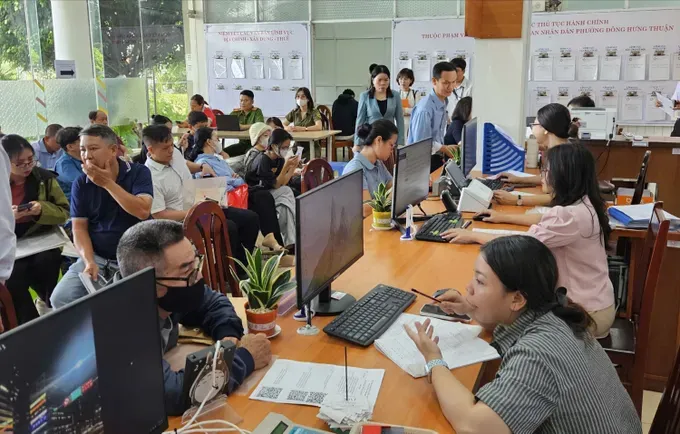
According to the draft decree, these KPI results will not only form the basis for a civil servant’s year-end classification but will also be linked to their evaluation as Party members. This data will directly inform key personnel decisions, including job assignments, rotations, promotions, rewards, and even dismissals.
Nguyen Nhat Khanh of the University of Economics and Law (Vietnam National University – Ho Chi Minh City) observes that applying KPIs to the public sector represents a critical paradigm shift in civil servant management.
“Job positions are the linchpin of personnel management”, he notes. “They form the basis for determining recruitment needs, deploying staff according to their competencies, and establishing standards for training, planning, and compensation.”
Managing by job position allows for more accurate evaluations, thereby enhancing the quality of public administration. “In particular”, he adds, “using KPIs will create immense pressure on civil servants to consistently strive to meet their job requirements, fundamentally altering their approach to work.”
Nguyen Tuan Anh, a public administration expert, concurs that this is a vital reform. “The country is in the midst of a major administrative overhaul, aiming to streamline the state apparatus and build a more service-oriented government”, he analyzed. “The new two-tier local government model demands clear responsibility, authority, and results. KPIs provide the tool to quantify the performance of each individual and agency.”
In his view, it’s a significant step toward aligning public sector human resources with modern governance practices. This change is expected to shift the administrative mindset from one of “management” to one of “service”, encouraging officials to proactively enhance their work management capacity and master digital skills.
He further analyzed that the KPI system will compel civil servants to transition from a mindset of “just getting the job done” to one of “delivering measurable quality”. This is expected to foster professionalism and reduce complacency or perfunctory work habits.
KPIs will also encourage healthy competition and help build a culture of accountability within the civil service. Simply put, high performers with innovative ideas will be recognized, while those who are stagnant or shirk responsibility will be clearly identified.

However, experts caution against a one-size-fits-all approach. They recommend that KPI criteria be tailored to the specific functions of each job position, striking a balance between quantitative metrics (e.g., number of dossiers processed, completion rates) and qualitative ones (e.g., citizen satisfaction, inter-agency cooperation).
The system must be flexible enough to adapt to changing contexts and avoid a mechanical, metric-chasing approach that could stifle creativity. Furthermore, they call for transparent oversight mechanisms, potentially including third-party participation from citizens or independent bodies, to prevent the manipulation of scores.
Addressing the challenge of evaluating non-quantitative roles, Mr. Nhat Khanh believes it is achievable with the right methodology. “Instead of measuring output, these positions can be assessed based on work processes, quality of execution, and their contribution to the unit’s overall effectiveness”, he suggests. “We can use indicators like on-time completion rates, the accuracy of advisory work, process compliance, or citizen satisfaction levels.”
Successful implementation of this KPI system, experts agree, requires meticulous preparation in terms of legal frameworks, human resources, and IT infrastructure. Management agencies must develop detailed and accurate job descriptions (professional qualifications, skills, moral qualities, and practical capacity), which will serve as the foundation for the entire system.
This will demand close coordination between the Ministry of Home Affairs and other local government bodies to ensure a scientific and widely applicable standard. The more specific the job position description, the more detailed and effective the application of KPI will be.
Under the draft decree, general criteria such as attitude, discipline, and public service culture will constitute 30 percent of the total score, with task performance measured by KPIs making up the remaining 70 percent. Civil servants are classified based on the results of monthly and quarterly monitoring and evaluation into 4 levels of below 50 points, from 50-70 points, from 70-90 points, and above 90 points.
Those scoring below 50 points, or who have committed disciplinary violations, will be deemed as “failing to complete tasks” and could face reassignment or dismissal. The Ministry of Home Affairs explains this mechanism is designed to create an objective tool for screening out underperformers while incentivizing a more productive, creative, and effective workforce.
























